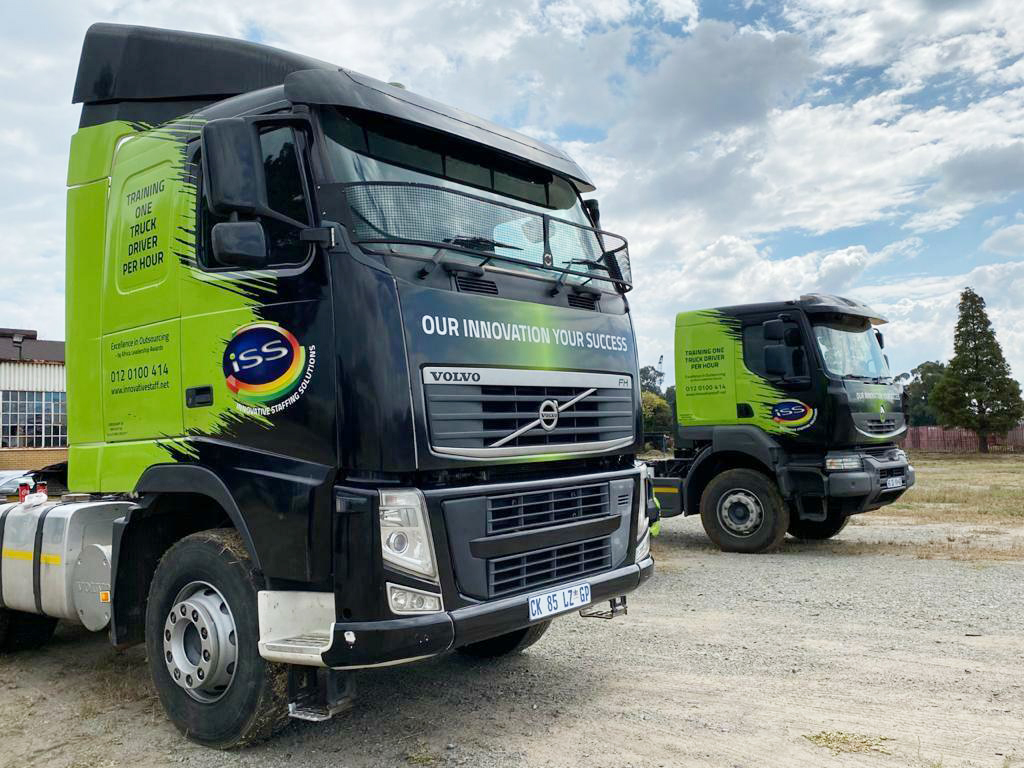Revealed: why training counts
Revealed: why training counts
Driver training is arguably the single biggest intervention that can be made to reduce South Africa’s high road accident rate. One wouldn’t think this needs to be said to the transport industry itself. After all, it’s an industry that suffers the most from accidents. Yet it is often seen as being part of the problem.
Some 16 000 people die on roads each year and 62% of the accidents involve trucks. Arnoux Maré, founder and CEO of Innovative Solutions Group and Innovative Staffing Solutions (which employs and outsources over 7 500 truck drivers), explains that the challenge in upgrading the driving skills of Code 14 professional drivers in South Africa lies in the shortage of such drivers.
“In 2021 there is a shortage of at least 3 000 truck and bus drivers in the South African transport sector, a shortage that leads to the recruitment of unskilled and illegal foreign drivers. Drivers are in such high demand that employers simply cannot allow them time off to enhance their skills and improve their abilities. They are required to be behind the wheel every available moment,” says Maré.
Another consequence of the shortage is that some employers may also be reluctant to train drivers, as they thus become more marketable and can be poached by competitors.

This short-term view does the logistics sector no favours, argues Maré, pointing out that drivers are the custodians of what is an R480-billion industry. Turning it from being “part of the problem” to being “part of the solution” requires inculcating industry-wide long-term thinking that values expert driving skills above all else.
As part of this long-term thinking, Innovative Learning Solutions (ILS) established a new driver training centre in Boksburg, Gauteng, in June 2020. It is aimed not only at South African Code 14 truck drivers, but also provides TETA-accredited skills to Code 10 drivers. Thousands of drivers now have access to invaluable skills development, advanced driving courses, and improved employability. The centre prides itself on offering both the hard and soft skills drivers desperately need.
Explaining the urgent need for driver training, Maré says Covid-19 was a wake-up call. With almost the entire economy in lockdown, trucks were in many instances the only means of keeping the country’s economy ticking, ensuring that food and medical supplies could still reach consumers. “Consumers and businesses increasingly recognised that, without skilled, committed truck drivers, most of the commerce in South Africa would grind to a halt. This has pushed driver training to the top of the priority list of the transport sector, where it justly belongs.”
The TETA-accredited centre was established by ILS to give truck drivers and their employers easy and affordable access to training, development and career support, while making these drivers, and our roads, safer. “This adds tangible value to the companies that employ them. ILS believes forward-looking employers would be willing to fund specially designed courses to fit their needs and benefit them by ensuring safe delivery of all cargo without delays,” Maré says.
While the immediate focus of the centre is specific accredited certification and specialised developed skills for Code 14 level, accreditation is also being sought for full Certification in Professional Driving from Code 10 to 14, for which approval is expected by July 2021.
The courses go well beyond theoretical and practical driving experience and safety training; they also prepare unemployed drivers for the market with job-interview and communication skills. The centre offers courses that simultaneously put unemployed drivers through a full medical exam, polygraph, reference and criminal check, and provides the trainee with these results as a hugely valuable CV “add-on” that significantly enhances their job prospects. After working with these drivers, ILS can share a skills and character reference letter – which further enhances the driver’s job prospects.
“The training helps make drivers more aware of situations they may encounter on the road, such as heavy traffic, crime, bad weather conditions, fatigue and other drivers behaving irresponsibly – and even faulty vehicle conditions. We help drivers understand how to respond to those conditions appropriately. But ultimately we provide logistics companies with the knowledge that drivers are adequately skilled for South African roads,” concludes Maré.
Published by
Focus on Transport
focusmagsa




